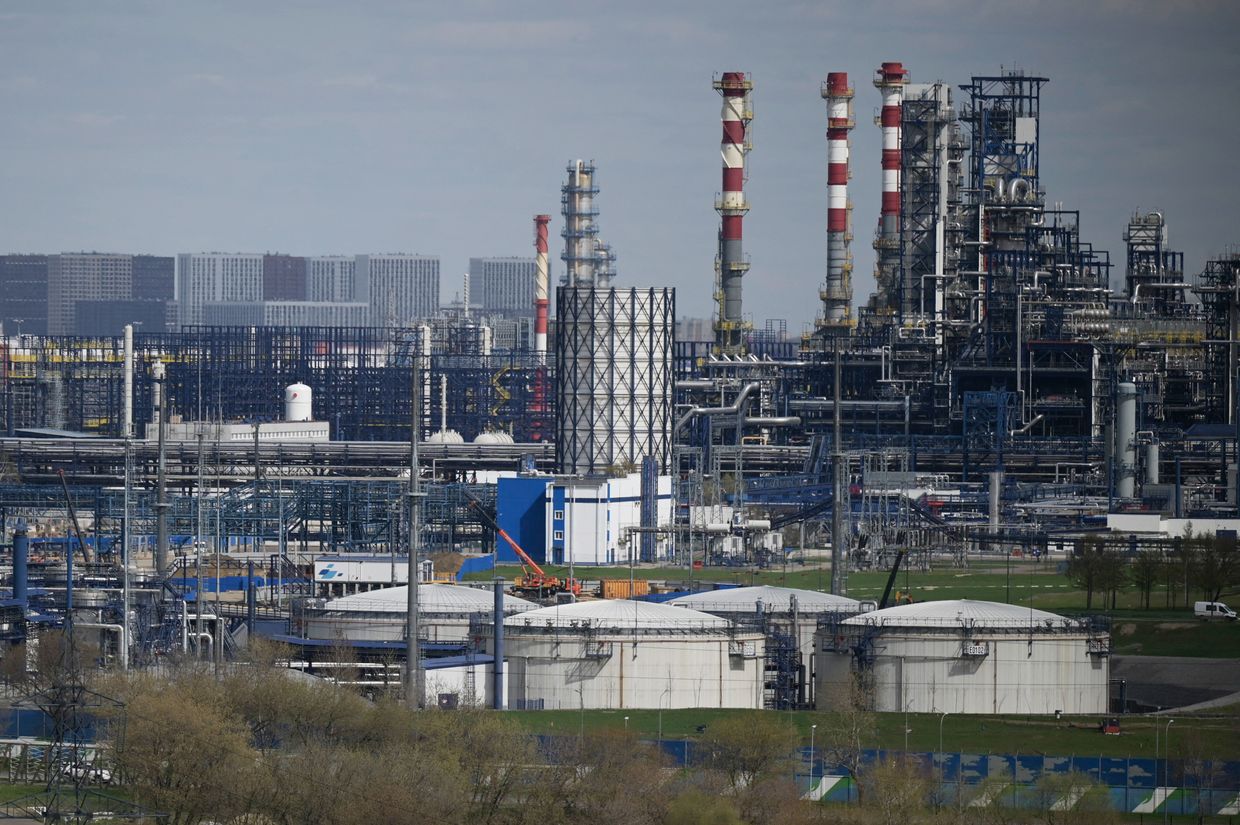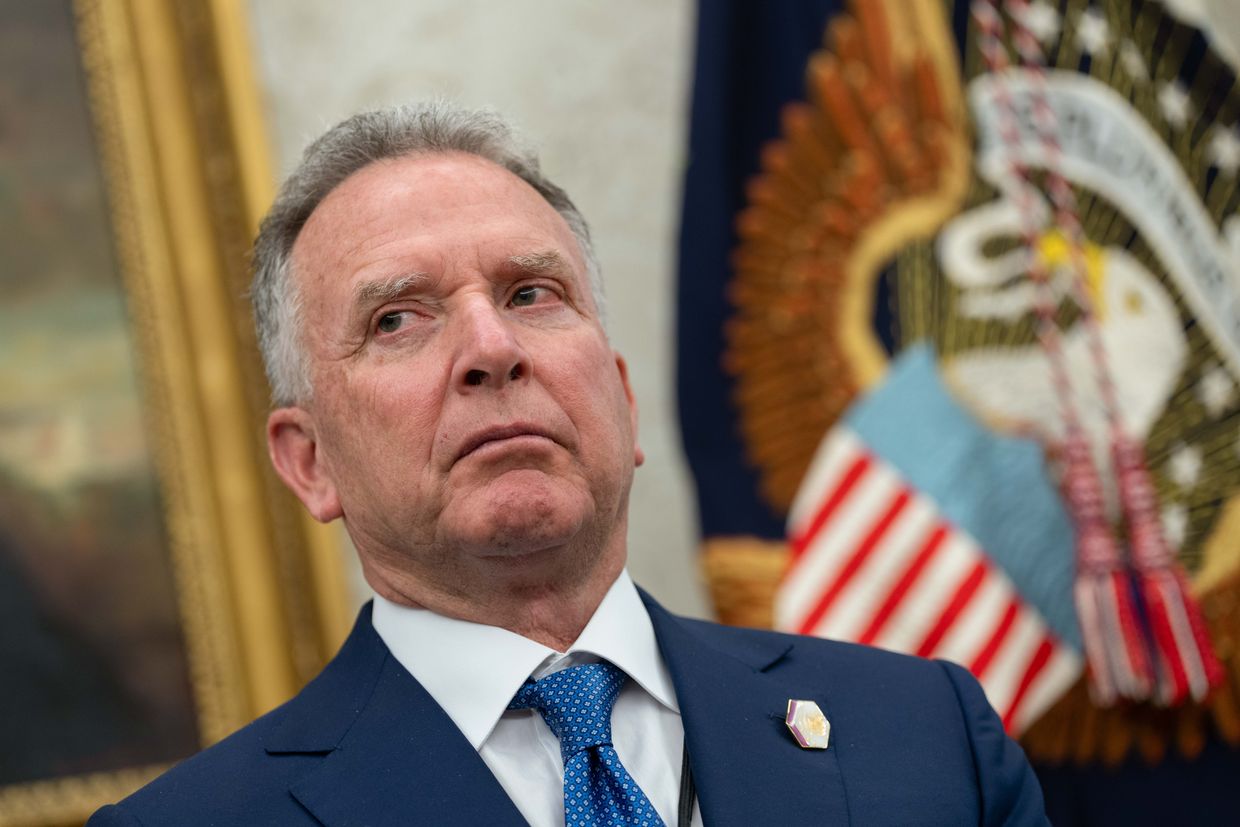U.K. Prime Minister Keir Starmer, French President Emmanuel Macron, German Chancellor Friedrich Merz, and Polish Prime Minister Donald Tusk will arrive in Kyiv early on May 10.
The United States embassy in Kyiv on May 9 issued a warning that Russia could launch "a potentially significant" attack in the coming days, despite Putin's self-declared Victory Day "truce."
The sanctioned oil tankers have transported over $24 billion in cargo since 2024, according to Downing Street. The U.K. has now sanctioned more shadow fleet vessels than any other country.
The sanctions list includes 58 individuals and 74 companies, with 67 Russian enterprises related to military technology.
Washington and its partners are considering additional sanctions if the parties do not observe a ceasefire, with political and technical negotiations between Europe and the U.S. intensifying since last week, Reuters' source said.
Despite the Kremlin's announcement of a May 8–11 truce, heavy fighting continued in multiple regions throughout the front line.
Putin has done in Russia everything that Luiz Inacio Lula da Silva had been against in Brazil.
The Kyiv Independent’s contributor Ignatius Ivlev-Yorke spent a day with a mobile team from the State Emergency Service in Nikopol in the south of Ukraine as they responded to relentless drone, artillery, and mortar strikes from Russian forces just across the Dnipro River. Nikopol is located across from the Russian-occupied Zaporizhzhia Nuclear Power Plant in the city of Enerhodar.
Peter Szijjarto's announcement came after Ukraine's Security Service (SBU) allegedly dismantled a Hungarian military intelligence network operating in Zakarpattia Oblast.
EU to unveil delayed Russian energy phase-out plan by May 6

The European Commission will present by May 6 a long-awaited roadmap detailing how the EU will phase out Russian fossil fuel imports, Reuters reported on April 14.
The strategy, originally scheduled for release last month, was postponed amid growing uncertainty over U.S. President Donald Trump's new tariff policies, which could affect energy trade and strain transatlantic negotiations.
The European Union committed in 2022 to ending Russian fossil fuel imports by 2027 in response to Moscow's full-scale invasion of Ukraine.
Despite cutting pipeline gas deliveries from Russia, the bloc continues to rely on Russian liquefied natural gas (LNG), which made up 19% of total EU gas and LNG supplies in 2024.
Unlike crude oil and coal, Russian gas remains unsanctioned due to internal EU divisions and energy supply concerns.
Hungary has vowed to veto any additional sanctions on Russian energy, which require unanimous approval by all 27 EU member states. Other governments have expressed reservations about banning Russian LNG before securing stable alternatives.
The full halt of Russian pipeline gas deliveries to the EU followed Ukraine's decision not to renew its transit agreement with Russian energy giant Gazprom past Dec. 31, 2024 — effectively cutting off a major route into Europe.
The U.S. initially stepped in to supply LNG to Europe after the war began, but the Trump administration's trade policies and rising transatlantic tensions have prompted EU member states to seek broader diversification, wary of over-reliance on Washington.

Most Popular

After 3 years of full-scale war in Ukraine, Europe announces plan to ban all Russian gas imports

Ukraine, Europe's ceasefire proposal includes US security guarantees, no recognition of Crimea, Reuters reports

Journalist Roshchyna's body missing organs after Russian captivity, investigation says

After Russia's deadly attack on Kyiv, Vance reposts denunciation of Zelensky

Ukrainian sea drone downs Russian fighter jet in 'world-first' strike, intelligence says
Editors' Picks

How medics of Ukraine’s 3rd Assault Brigade deal with horrors of drone warfare

As Russia trains abducted children for war, Ukraine fights uphill battle to bring them home

'I just hate the Russians' — Kyiv district recovers from drone strike as ceasefire remains elusive



